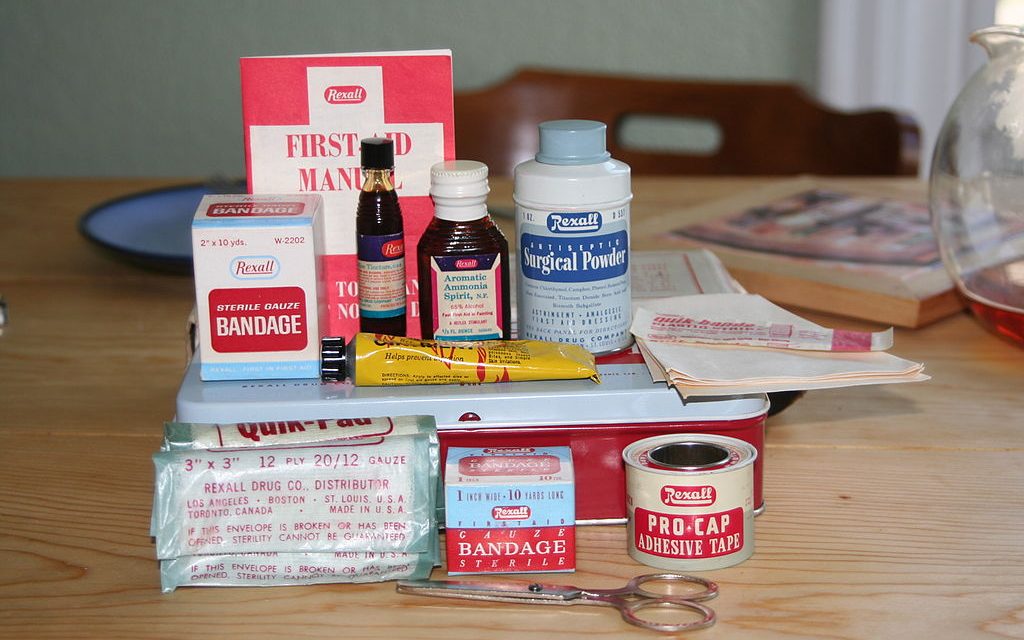 Show of hands if you were nervous for your little one on their first day of school. Every parent dreads the day when their kids finally grow up but you have to remember; where there’s nothing ventured, there’s nothing gained.
Show of hands if you were nervous for your little one on their first day of school. Every parent dreads the day when their kids finally grow up but you have to remember; where there’s nothing ventured, there’s nothing gained.
However, considering some of the stuff that happens in the halls of higher education, there’s a lot to be nervous about nowadays. With a varsity first aid kit tucked away somewhere, you can rest easy knowing emergencies will be taken care of.
The Safe side
First you need to pack medical supplies. Campus clinics aren’t always reliable so it’s best to have all the healthcare basics on hand. This includes eyewash, diarrhea medication, disposable gloves, rubbing alcohol, and antacids. All of these can come in handy.
Band aids in all shapes and sizes, surgical tape, Ibuprofen, antibiotics; these are the unsung heroes of dorm life. Tweezers are often overlooked but what happens when your little scholar needs a splinter removed?
Make sure your child takes one of the available free first aid courses before they make their way to University, so they know how to use the items in their first aid kit.
Life-Saving Information
Sometimes the real danger is a lack of information. Make sure your bookworm-to-be has campus health contact information. Remember when your teen had a fever or tummy ache in school and all they had to do was have the school call you? Those days are over.
Get your health insurance details and numbers, grab the family doctor’s contacts and urge your future graduate to get campus health contacts.
If there are any medical conditions, be it allergies or diabetes, it’s important that they have those details close to them. These can either be packed inside the little first aid box that you will have made for them, or on their person; in a wallet or on a bracelet, something they won’t lose easily.
Blood type, prescription information, emergency contacts, all these should be readily available if need be. It could mean the difference between life and death.
When in Rome
Be mindful of where the university is. Is it an earthquake-prone country? Is it a blizzard-bound area? You have to pack with all this in mind.
For instance, if floods or hurricanes are an issue, pack some survival items and protective gear.
Is the area out of the jurisdiction of your prescription insurance? Some areas don’t allow prescriptions to be filled at school so you have to find a way to fill it for them. Perhaps the school clinic can write the prescription and fill it locally; it all differs from province to province so get those facts straight.
The Art of Packing
How you package your first aid items will determine their longevity. Get something transparent like a plastic box. This will make it easy for a passerby to identify the contents.
Make sure it doesn’t break easily and it must be waterproof. Something with a gasket would be ideal; moisture is not something you want to have in your first aid kit. A rubber gasket can help close off all the moisture from outside.
It’s best for the kit to be locked up in a secure space because you just never know with university students; they just might try to steal it for fun.
Extra, Extra, Read All About It
There are some things you never know you’ll need until you need them. Those things that when you use them, seem so important, but in everyday life we take them for granted.
Lip balm, scissors, throat lozenges, nail clippers, sunscreen; can you imagine life without these things? How can you survive without Vaseline? What would life be without bug repellant, you can’t expect the dorm rooms to be as comfortable as home, can you?
You’ve Been Schooled
The very act of putting together a first aid kit will communicate something; it’s a reminder to stay safe and it empowers your young one to be resourceful, to stand on their own two feet and to stop depending on you for everything.
Somewhere down the line, they will get sick and they will get injured and you won’t be there to ‘patch them up’ or nurse them back to life. Universities have health centers and emergency rooms but it isn’t practical to visit these unless there’s a serious situation.
A little injury or illness doesn’t call for campus health, so your little genius will appreciate the thought you put into this. Yes, you wouldn’t want a chance to say “I told you so” but you’ll be glad it came in handy.




It’s cool that this article mentions that it’s a good idea for students to take bandages with them in a first aid kit when they go to college in case they hurt themselves. My son is heading to college in a few weeks, so I’m thinking about buying him some organic bandages for his first aid kit. I’m going to search for a good business that can sell me some organic bandages.
Thanks for the advice to have different shapes and sizes of band-aids in your first aid kit. No one wants to get a cut and not have a way to cover it up. I’ll be sure to send my son to college with a ton of different bandages.